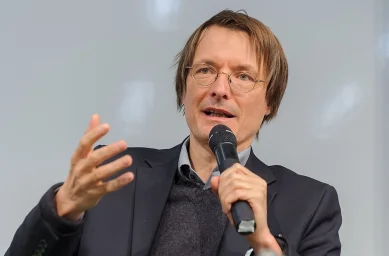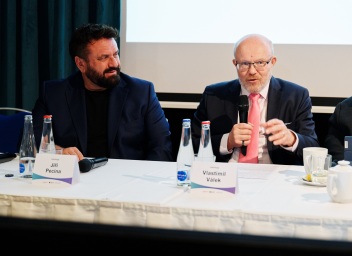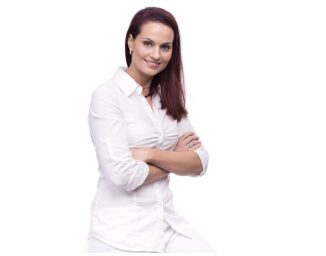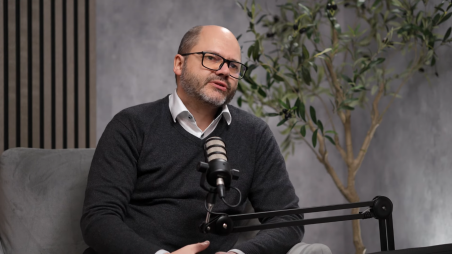Promoting changes in legislation, educating society and building physical activity as an important part of prevention and treatment of patients. These are the values on which the Czech Republic should work, according to Michaela Šebelová, a member of the Health Committee of the Chamber of Deputies. The MP sees several ways to improve the regular exercise of Czechs. One of them is the establishment of a Czech Ministry of Sport, but also „activity on prescription“. She presented her vision at the third annual conference of the Healthcare Daily titled Economics of Prevention.
The value of health is priceless, no doubt about it. Even though many young people are active athletes, Šebelová says it is still a politically underrated topic in the Czech Republic. „Healthcare should not just be about treating diseases. We should already be interested in healthy people. I would like regular physical activity to become part of prevention,“ she says at the beginning of her lecture.
Even the World Health Organisation is not satisfied with people’s sporting performance. According to regular reports, people’s physical activity in the world has remained virtually unchanged from 2010 to 2020, it has even slightly worsened.

Šebelová says the word „sport“ itself can be a problem, as it can evoke excessive anxiety in many people and can therefore mean something incomprehensible to many of them. „People can imagine that they are not capable of doing it because they can’t do it. It’s not true. Really, anyone can play sport,“ she appeals, adding that if, for example, an older person is afraid to go to the gym because they don’t know how to exercise properly, we as a society should address that because it is a big issue.
The promotion of healthy lifestyle should run through virtually all areas of our society – in particular education, local development, the environment and, last but not least, healthcare. „It is a big mistake that we do not have a Ministry of Sport. Support for sport is incredibly fragmented. Sport is a policy and this is how we should approach it,“ says Šebelová.

But as she goes on to say, if the activity does not come from the top, it has to start from the bottom. For this reason, the Active Czechia Foundation (Aktivní Česko) was established, whose purpose is to provide long-term and systemic support for physical activities and an active lifestyle across various sectors of public and private life of Czech citizens.
According to Šebelová, we need to create an active community of sporting people, but this must be reflected in all areas of society. „The Village of the Year competition could be an example. However, the competition does not take into account whether a given village supports sport and there is no evidence that they should monitor it,“ she explains, adding that an active community also involves an active environment. „It’s not enough to tell people to move. It’s also about how we create public space, whether pedestrians have priority, whether it’s pleasant to walk in the space and spend time there. We’d rather put three parking spaces there,“ she says critically of the Czech Republic’s infrastructure.

Lifting weights after 60? An exception for Czechs, a way of life for Finns
When you say the word fitness, most people probably think of a gym full of young people lifting weights and running on a treadmill. According to Šebelová, this sector can play a huge role in the prevention economy. „In our country, the perception is that it’s where crazy people go who want to have big muscles. But the older we get, the more we need to have strong muscles and work out. Can you imagine a 60-year-old going to the gym in our country? In the Czech Republic, unfortunately, it’s a ridiculous idea, but in Finland it’s quite common,“ says Šebelová, whose German physiotherapist colleagues have, for example, a gym with fitness equipment next to their offices for patients to use.
Rather than excusing children from gym class and avoiding physical activity, Šebelová says we should approach exercise on prescription. „I don’t like it when we ban a certain movement. How can we tell which movement is healthy and which is not? If a doctor prescribed that we should do something three times a week, I think it could be beneficial, and there are even countries that are starting to apply it,“ she says, adding that only healthy citizens are useful for our country.
Mohlo by vás zajímat
Nela Slivková
Photo by Radek Čepelák
We would like to thank the General Health Insurance Company, National Sports Agency, RBP, Health Insurance Company of the Ministry of Interior of the Czech Republic, Military Health Insurance Company, EUC Medical Group and Sprinx for their support of the conference.











